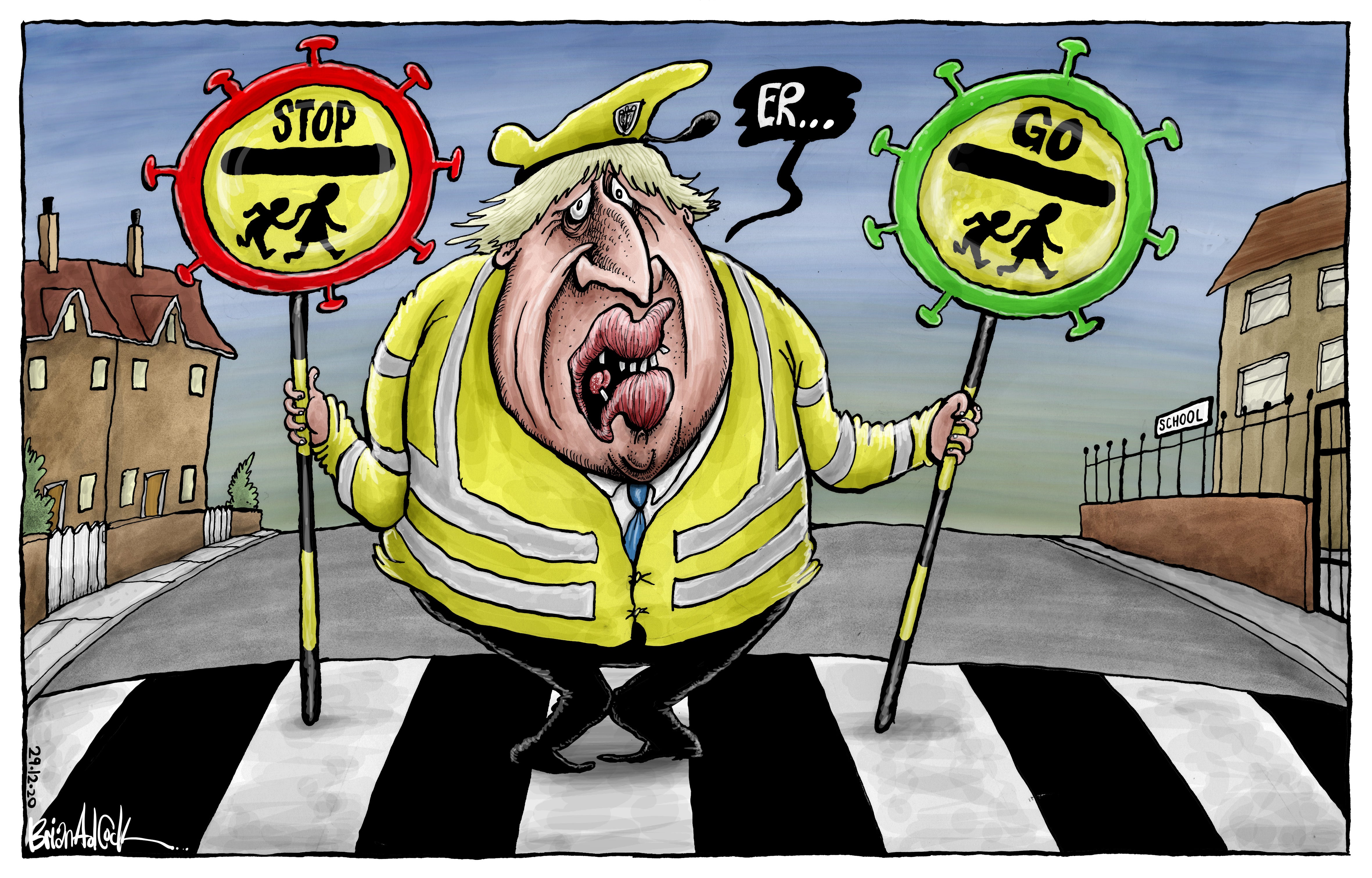Schools must stay shut until we know what dangers are posed by new variants of the virus
Editorial: By far the safest option at this point is to slow the course of the virus when vaccination for the most vulnerable and for key workers, including teachers, is so tantalisingly close

Few things remain certain in the age of Covid and even now, with Christmas (or what passed for it) over, parents and children are faced with renewed doubts about when the schools will be reopening.
The government, in the evasive, over-spun tones of Michael Gove, doesn’t really yet know itself. The plan for a staggered return – broadly similar across all four home nations – remains in place.
Ministers and advisers will spend the next day or two, apparently, making sure that plan is still “robust”. If it is judged to be less than robust, the return, staggered or not, will be delayed. Presumably, too, the decision may vary across the UK, according to the judgements of the devolved governments.
So we don’t know. Partly that is down to the usual dither and delay that has characterised the official response to coronavirus for the best part of a year now. Partly, too, it is prompted by the rapid spread of the new variants of the virus, which are certainly more transmissible and which may affect younger people more severely than the original version of the virus.
Schools, for obvious reasons, have come back into focus both as centres for rapid community transmission, and because of the importance of maintaining the health and welfare of the under-18s.
As ever, the precautionary principle should guide policy. The damage to education and life chances cannot be dismissed – the effects of children from poorer backgrounds missing vital lessons will be real and lasting. Yet that loss of education will be even greater if a longer and more restrictive lockdown becomes necessary later on because the new variants have taken an even tighter hold across the country. Widespread illness from Covid among children would also have a radical effect on their mental and physical development.
At the moment there is a race between infection and injection. If the transmission of the new variants of the virus can be slowed, there is less chance of it taking hold before mass vaccination and herd immunity arrive to contain it anyway. There is also the slight risk (so far) that the new variants will prove more resistant to the vaccine, making it even more important to suppress them and buy more time for fresh vaccine development and a testing system.
There are difficult choices to be confronted once again. Without children returning to school, the lives and livelihoods of many families with working parents will be disrupted. By far the safest option at this point, however, is to slow the course of the virus when vaccination for the most vulnerable and for key workers, including teachers, is so tantalisingly close. Postponing the return to the classroom will be worth it.
Join our commenting forum
Join thought-provoking conversations, follow other Independent readers and see their replies
Comments


Bookmark popover
Removed from bookmarks